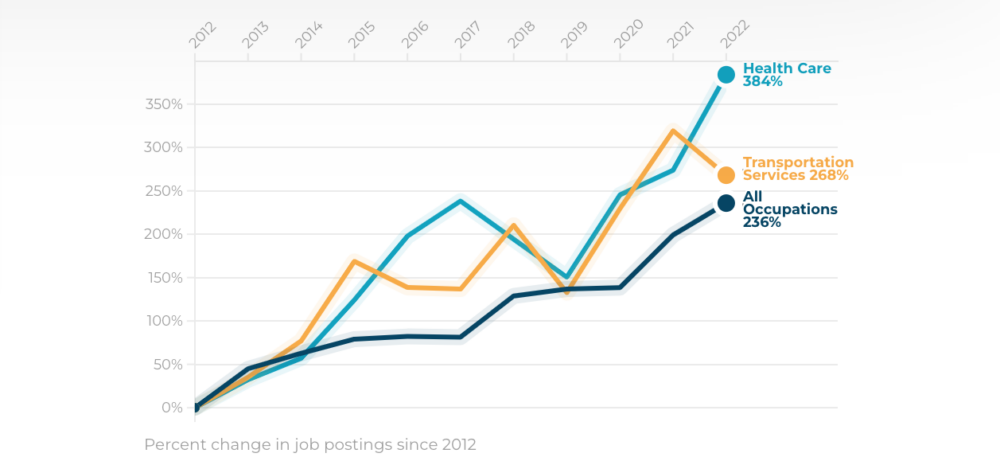

, Workforce & Economic Mobility
Key Takeaway
We believe employers can and should engage more deeply in innovative solutions to today’s talent challenges. That’s why Social Finance is working to identify effective and underutilized opportunities for employers to finance, train, hire, and retain diverse talent with support from Walmart.
For decades, we’ve been accustomed to a labor market shaped by demand-side power—a market best described as people seeking jobs. But now, the dynamics are reversed: jobs now seek people. In the midst of “the Great Reshuffle,” employers have realized that the availability of talent—even entry-level talent—directly impacts their bottom line. Labor power has increased, leading to a new social contract for American companies. At the same time, since the murder of George Floyd, the American public has demanded more intentional corporate participation in addressing racial injustice. Despite the urgency of the challenge to fill talent shortages and meet diversity, equity, and inclusion priorities, the persistence of racial inequity within an economy experiencing record-high job openings indicates we still have far to go.
Fortunately, we are seeing emerging examples of progress from various companies. Penske, Penn Power Group, Hissong Kenworth, and other top transportation services companies are leveraging the American Diesel Training Centers Career Impact Bond to provide training for workers looking to upskill into diesel technician roles—strengthening company talent pipelines while advancing economic mobility for a diverse population of workers. And with support from the $100 million Google Career Certificates Fund, Social Finance is partnering with Merit America, Year Up, and other training providers to help more than 20,000 learners earn industry-recognized credentials, land good jobs, and realize $1 billion in wage gains over the next decade. Finally, major companies in New Jersey, like Merck and Prudential Financial, are helping people access in-demand jobs that offer a pathway to economic mobility through a place-based Pay It Forward Fund in New Jersey.
We’re proud of the work we’ve undertaken with our partners and the impact we’ve had so far, but we believe employers can and should engage more deeply in innovative solutions to today’s talent challenges. That’s why Social Finance is working to identify effective and underutilized opportunities for employers to finance, train, hire, and retain diverse talent with support from Walmart. In particular, we will investigate novel investments in entry-level talent acquisition, case studies of companies setting aside competitive concerns to collaborate more broadly on talent challenges, and the how and why of companies already considering or undertaking substantial investments in talent training.
We invite you to join us as we conceptualize new opportunities in talent development and talent finance. Please contact Justin Bakule or Kyle Doran for more information or to get involved. We’re interested to learn about your talent challenges and emerging talent finance strategies to address them.
Related Insight

Thinking Like a Talent Investor
With employers across the country facing critical talent shortages, companies are exploring new ways to upskill and reskill workers. This report illustrates how, with intentional design and an “investor” mentality, employers can deploy Talent Finance…

Video: Talent Finance
Talent Finance bridges the gap between employers, training partners, supportive service providers, and capital providers, enabling them to collaborate on self-sustaining talent programs that prepare workers for the specific jobs employers need filled.

Is Talent Finance Right for Me?
Employers across the country are grappling with the challenge of filling critical job openings in industries like health care and transportation services. Explore our series of data visualizations to learn more about these in-demand occupations…